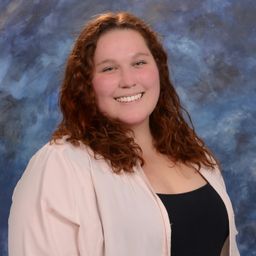Students with Special Educational Needs and Additional Language Education: What Happens in Practice and Research?
Mon statut pour la session
Students with Special Educational Needs and Additional Language Education: What Happens in Practice and Research?
Marie-Ève St-Laurent et Philippa Bell
Département de didactique des langues, Université du Québec à Montréal
Des questions en français sont les bienvenues.
Research into additional language (AL) learning interested in explaining differences between learners in terms of success has focused on specific cognitive and affective abilities and traits, such as working memory and motivation. However little research has focused on students with special educational needs (SENDs) with learning and developmental disabilities despite their impact on a person’s lifelong academic, professional and personal development and fulfilment. As with other subjects within Quebec’s compulsory education system, AL learning is part of the curriculum. Despite this, SENDs students may not have equal access to AL classrooms for a variety of reasons. In fact, even though there has been a push towards inclusion of students with SENDs in regular classrooms in recent decades, and ample research highlights that inclusive practices are linked to effectiveness in schools, the majority of schools in Quebec do not adopt such practices (Rousseau et al., 2014).
In this presentation, realities and practices in relation to students with SENDs within compulsory education requirements are presented. These largely exclusionary practices are then compared with research into SENDs in terms of AL learning. Based on the evident incoherence between practice and research, future directions are discussed with a particular emphasis on the need for more research into SENDs populations in AL teaching contexts in order to work towards improving their educational path, which at present results in no graduation between 200% to 400% more often than non-SEND populations (Statistics Canada).
Références
Government of Canada, S. C. (2014, December 3). Learning disabilities among Canadians aged 15 years and older, 2012. https://www150.statcan.gc.ca/n1/pub/89-654-x/89-654-x2014003-eng.htm
Government of Canada, S. C. (2015, December 3). Developmental disabilities among Canadians aged 15 years and older, 2012. https://www150.statcan.gc.ca/n1/pub/89-654-x/89-654-x2015003-eng.htm
Rousseau, N. Point, M., & Vienneau, R. (2014). Les enjeux de l’intégration et de l’inclusion scolaire des élèves à risque du primaire et du secondaire : Méta-analyse et méta-synthèse. Rapport de recherche action concertée: Les approches et pratiques favorables à la Persévérance et réussite scolaires, 56. https://frq.gouv.qc.ca/app/uploads/2021/06/pc_rousseaun_rapport_integration-inclusion.pdf



Discussion